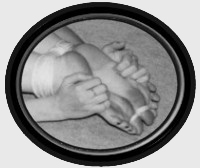Hi guys.
The previous thread did not go according to plan so I have made a new one.
In this series you can expect regular updates on various tips and tricks I believe to be highly beneficial to use in one's fitness and nutrition endeavours, coming from a fellow personal trainer and nutritionist.
I have been into fitness for quite some time, and have experience with clients both online and in-person.
You can expect to find only substantiated principles and methods here - no myths. Actually you can expect to see debunking of myths from time to time.
As a miscellanous addition to the thread I may include various workout footage so that you can take a glimpse into what I get up to!
Stay tuned for updates!
I understand how you are feeling, psychologically exercise and nutrition are difficult because they are slow processes. We all have idealistic goals in mind and action plans to reach them, however the primary obstacle is how long it will take. This can lead to incorrect conclusions on what is going on and how to deal with it.
From your sample diet I cannot help but notice a low fat intake. This is a common trend among bodybuilders and people who generally train for physqiue purposes. The name itself is literally a term for adipose tissue, so it may be natural to many to think negatively of it. In actuality, fat is a very important component of one's diet. One of the roles of fat, among many, is optimising hormones. As you can imagine, a low fat diet will be far less optimal for hormonal optimisation, meaning that hormone-related side effects can take place. One of them can actually be elevated hunger - I find it's a common trend among increased appetite and low fat diets. There are a multitude of potentially negative effects from low fat diets, so it may be worth ensuring that this is not an issue.
Otherwise I would say that you are along the right lines from the progress you are reporting.
The previous thread did not go according to plan so I have made a new one.
In this series you can expect regular updates on various tips and tricks I believe to be highly beneficial to use in one's fitness and nutrition endeavours, coming from a fellow personal trainer and nutritionist.
I have been into fitness for quite some time, and have experience with clients both online and in-person.
You can expect to find only substantiated principles and methods here - no myths. Actually you can expect to see debunking of myths from time to time.
As a miscellanous addition to the thread I may include various workout footage so that you can take a glimpse into what I get up to!
Stay tuned for updates!
OK. Just kind of in the mode of "enough is never enough" with diet and exercise...I find for example lately my morning routine is egg salad on potato bread, a cup of coffee (almond milk/half and half depending what I feel) and a banana, along with vitamins....pretty good at 6AM, no? By 10AM my stomach's telling me I'm starving again...Lately I've been putting in water rather than giving in, but still...I feel like something's missing, even tho I feel like I'm generally eating enough each day.
I understand how you are feeling, psychologically exercise and nutrition are difficult because they are slow processes. We all have idealistic goals in mind and action plans to reach them, however the primary obstacle is how long it will take. This can lead to incorrect conclusions on what is going on and how to deal with it.
From your sample diet I cannot help but notice a low fat intake. This is a common trend among bodybuilders and people who generally train for physqiue purposes. The name itself is literally a term for adipose tissue, so it may be natural to many to think negatively of it. In actuality, fat is a very important component of one's diet. One of the roles of fat, among many, is optimising hormones. As you can imagine, a low fat diet will be far less optimal for hormonal optimisation, meaning that hormone-related side effects can take place. One of them can actually be elevated hunger - I find it's a common trend among increased appetite and low fat diets. There are a multitude of potentially negative effects from low fat diets, so it may be worth ensuring that this is not an issue.
Otherwise I would say that you are along the right lines from the progress you are reporting.













